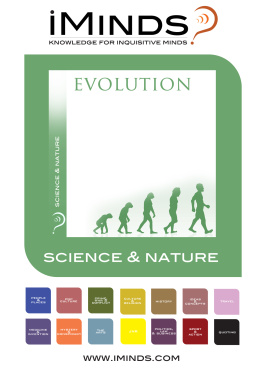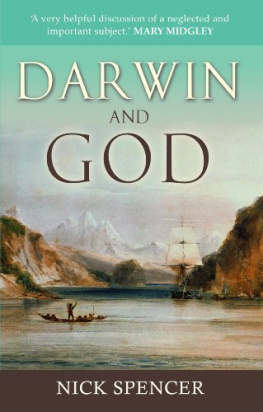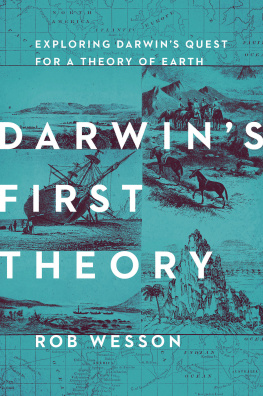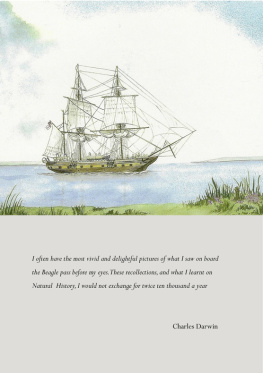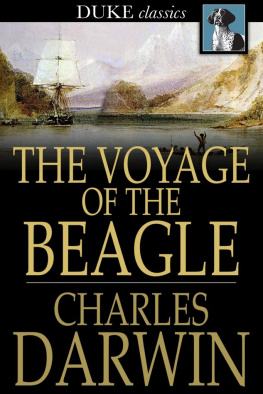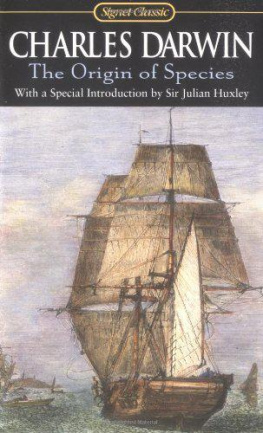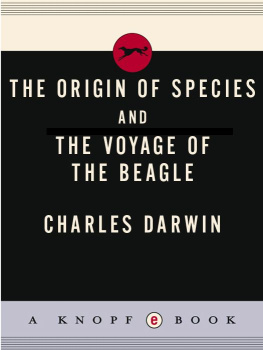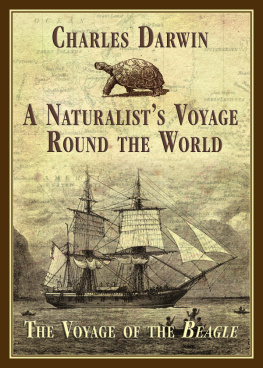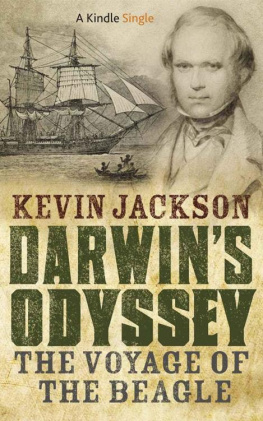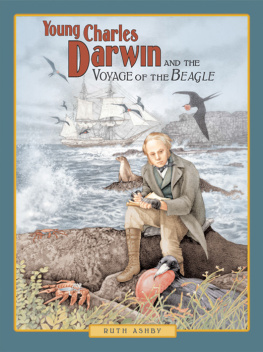Jones - The Darwin Archipelago
Here you can read online Jones - The Darwin Archipelago full text of the book (entire story) in english for free. Download pdf and epub, get meaning, cover and reviews about this ebook. year: 2011, publisher: Yale University Press, genre: Detective and thriller. Description of the work, (preface) as well as reviews are available. Best literature library LitArk.com created for fans of good reading and offers a wide selection of genres:
Romance novel
Science fiction
Adventure
Detective
Science
History
Home and family
Prose
Art
Politics
Computer
Non-fiction
Religion
Business
Children
Humor
Choose a favorite category and find really read worthwhile books. Enjoy immersion in the world of imagination, feel the emotions of the characters or learn something new for yourself, make an fascinating discovery.

- Book:The Darwin Archipelago
- Author:
- Publisher:Yale University Press
- Genre:
- Year:2011
- Rating:4 / 5
- Favourites:Add to favourites
- Your mark:
- 80
- 1
- 2
- 3
- 4
- 5
The Darwin Archipelago: summary, description and annotation
We offer to read an annotation, description, summary or preface (depends on what the author of the book "The Darwin Archipelago" wrote himself). If you haven't found the necessary information about the book — write in the comments, we will try to find it.
Jones: author's other books
Who wrote The Darwin Archipelago? Find out the surname, the name of the author of the book and a list of all author's works by series.
The Darwin Archipelago — read online for free the complete book (whole text) full work
Below is the text of the book, divided by pages. System saving the place of the last page read, allows you to conveniently read the book "The Darwin Archipelago" online for free, without having to search again every time where you left off. Put a bookmark, and you can go to the page where you finished reading at any time.
Font size:
Interval:
Bookmark:
THE DARWIN ARCHIPELAGO
ALSO BY STEVE JONES
The Language of the Genes
In the Blood
Almost Like a Whale
Y: The Descent of Men
The Single Helix
Coral: A Pessimist in Paradise
The Naturalists Career Beyond Origin of Species
STEVE JONES

Published with assistance from the Louis Stern Memorial Fund.
An earlier edition of this book was published in Great Britain in 2009 by
Little, Brown as Darwins Island: The Galapagos in the Garden of England.
Copyright 2011 by Steve Jones.
All rights reserved.
This book may not be reproduced, in whole or in part, including illustrations, in any form
(beyond that copying permitted by Sections 107 and 108 of the U.S. Copyright Law and
except by reviewers for the public press), without written permission from the publishers.
Yale University Press books may be purchased in quantity for educational, business, or
promotional use. For information, please e-mail sales.press@yale.edu (U.S. office)
or sales@yaleup.co.uk (U.K. office).
Set in Electra Roman type by Tseng Information Systems, Inc.
Printed in the United States of America by Sheridan Books, Ann Arbor, Michigan.
Library of Congress Cataloging-in-Publication Data
Jones, Steve, 1944[Darwins island]
The Darwin archipelago : the naturalists career beyond Origin of species / Steve Jones.
p. cm.
Includes bibliographical references and index.
Originally published: Darwins island. London : Little, Brown, 2009.
ISBN 978-0-300-15540-2 (hardcover : alk. paper)
1. Darwin, Charles, 18091882. 2. NaturalistsGreat BritainBiography.
3. Evolution (Biology). 4. Natural selection. I. Title.
QH31.D2J76 2011
570.92dc22
[B]
2010038593
A catalogue record for this book is available from the British Library.
This paper meets the requirements of ANSI/NISO Z39.481992 (Permanence of Paper).
10 9 8 7 6 5 4 3 2 1
To R. C. Simpson, who first taught me biology
C HARLES DARWIN, AS MOST PEOPLE KNOW, SAW THE FINCHES OF the Galapagos in the years he spent in the archipelago while employed as official naturalist on HMS Beagle. Each island had its own species, and Darwin soon worked out that they shared descent from a common ancestor; that they were a product of evolution. On his return to England he at once published his theory in his book Origin of the Species, in which he went on to prove that humans had descended from chimpanzees. Nature, red in tooth and claw, had used the survival of the fittest to weed out the imperfect and, with Homo sapiens at the top of the evolutionary tree, had achieved her desired end. Racked by guilt at replacing the doctrines of the Church with a joyless vision of man as a shaven primate in an amoral universe, Darwin retired into obscurity. He repented his blasphemy on his deathbed and was buried as a venerable and almost forgotten savant wholike so many famous scientistshad done his most important work as a young man.
All this is an entire parody of the truth. Darwin was not a hired biologist but paid for his own trip as gentleman-companion to the Beagles captain. He spent just five weeks of the five-year voyage in the Galapagos and set foot on only four of its dozen or so islands. He had little interest in his collection of finches and lumped their corpses together as a jumbled mass without even noting from which island they came. Two decades passed before the publication of The Origin of Species (in which the word evolution does not appear), and during that period its author wrote several substantial books. The phrase the survival of the fittest is not his but was invented by the philosopher Herbert Spencer to summarise the notion of natural selection, the central element of evolutionary theory. The bloody fangs and fingernails of Mother Nature were thought up by Tennyson a decade earlier and not as a philosophy of life but in memory of the death of a friend. Evolution has no end in view and men do not descend from chimps, although the two share a common ancestor (an idea not explored by Darwin for a dozen years after The Origin). The Church soon accommodated his ideas, which, as its clerics realised, have no relevance to religion. His deathbed conversion is a simple falsehood (even if the great naturalist was buried in Westminster Abbey, where he still lies, trampled by tourists).
The most widespread error is to assume that the Beagle voyage marked the end of Charles Darwins scientific career. In the four decades that remained to him after he came back from the wilds in 1836, Captain Fitzroys gentleman-companion worked as hard as or harder than he had as a young man. He soon purchased Down House, south of London. At first he thought the place dull and unattractive, but before long it was transformed, with the help of his considerable fortune, into a grand but comfortable mansion. Its owner settled in the land of his birth and never again left: uxorious, paternal, and reluctant to abandon his extensive garden except on forays to test his theories and, now and again, to search for better health. Great Britain was the first and last of his forty islands and he studied its natural history in far more detail than that of anywhere else. For him, Kent was as much a place of discovery as had been the jungles of the Amazon or the stark cinders of the Galapagos. The British Isles were where Charles Darwin built his reputation.
This book is about the disregarded Darwin and about his years of work on the plants, animals, and people that make their home in the land of his birth. The Origin of Species is without doubt the most famous book in science. It celebrated its hundred-and-fiftieth anniversary in 2009 (which also marked the authors bicentenary), but to remember Darwin for that magnum opus alone would be as foolish as to celebrate Shakespeare only as the author of Hamlet. His lifelong labourssix million words in nineteen published works, hundreds of scientific papers, and fourteen thousand lettersgenerated an archipelago of information, a set of connected observations that together form a harmonious whole. Biology emerged from that gargantuan effort as a unitary subject, linked by the great idea of common ancestry, of evolution. The volumes written in Down House made sense of a whole new science and enabled its students to navigate what had been an uncharted labyrinth of shoals, reefs, and remote islets of apparently unrelated facts.
The Origin is a work of reportage as much as of research. Most of Darwins other books are, in contrast, based on his own observations and experiments. They explore, with trademark enthusiasm, what seem at first sight to be almost unrelated aspects of the natural world. Charles Darwins domestic works, as they might be called, are (in order of publication and with titles somewhat truncated): Barnacles (in four volumes), Orchids and Insects, Variation under Domestication, The Descent of Man, Expression of the Emotions, Insectivorous Plants, Climbing Plants, Cross and Self-Fertilisation, Forms of Flowers, Movement in Plants, and Formation of Vegetable Mould by Earthworms. Much of his oeuvre was aimed at a wide audience and is set out in good, plain Victorian prose. He wrote to Thomas Henry Huxley that I sometimes think that general and popular Treatises are almost as important for the progress of science as original work. Charles Darwin was the eras greatest popular science writerand his publisher realised as much for he gave
Next pageFont size:
Interval:
Bookmark:
Similar books «The Darwin Archipelago»
Look at similar books to The Darwin Archipelago. We have selected literature similar in name and meaning in the hope of providing readers with more options to find new, interesting, not yet read works.
Discussion, reviews of the book The Darwin Archipelago and just readers' own opinions. Leave your comments, write what you think about the work, its meaning or the main characters. Specify what exactly you liked and what you didn't like, and why you think so.







